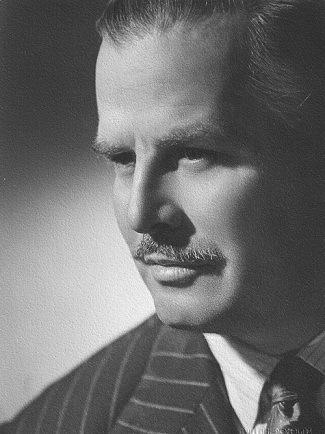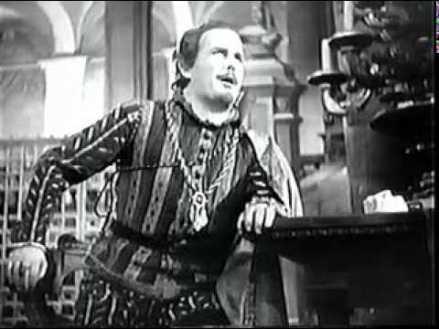
Mario Filippeschi (operaarts.com)
Today, I received a wonderful e-mail surprise from someone named Rosanna Filippeschi Sudano, the daughter of Italian tenor Mario Filippeschi and reigning King of the High C’s from the 1940s and 50s.
Born on June 7, 1907, in the town of Montefoscoli in the Tuscan province of Pisa, Filippeschi made his operatic debut near Parma on July 19, 1937, as Edgardo in Donizetti’s Lucia di Lammermoor. From this humble beginning, he went on to sing all over Italy, Spain, Portugal, Greece and Germany, as well as in Mexico and parts of Latin America. Although he never sang in the U.S., Filippeschi is best remembered for early recordings of Bellini’s Norma with Maria Callas and Ebe Stignani, and the first ever complete recordings of Rossini’s Mosè in Egitto (“Moses in Egypt”) with bass Nicola Rossi-Lemeni, and the same composer’s last opera, William Tell, with Giuseppe Taddei and Rosanna Carteri, conducted by Mario Rossi.
Signora Sudano wrote to correct me about an article I had posted concerning her father’s appearance and voice-over work in the 1946 postwar film version of Verdi’s Rigoletto. The film, which was shot on the stage of the Rome Opera House, featured such legendary artists as baritone Tito Gobbi as a marvelously lithe Rigoletto, Mario Filippeschi as the Duke of Mantua, bass Giulio Neri as a black-toned Sparafucile, and soprano Lina Pagliughi singing (but not acting) the role of Rigoletto’s daughter Gilda. The director was noted opera lover Carmine Gallone, who specialized in numerous motion pictures about the lyric art form during this and later time periods.
The correction Mrs. Sudano wished me to make was my claim that, although Filippeschi had acted the part of the Duke (stunningly, I might add), his voice was dubbed by another gigantic-toned tenor, that of the young Mario Del Monaco. To my dismay, it suddenly dawned on me that I had indeed credited the wrong Mario with having sung Verdi’s callous and womanizing aristocrat. Pulling out my notes and checking as many sources I could lay my hands on, I verified that… yes, I goofed! Del Monaco was out and Filippeschi was in. All I could think of was Floria Tosca’s cry of “Mario, Mario, Mario!” Boy, did I make a booboo!!!

Filippeschi as the Duke of Mantua
I quickly responded to Signora Sudano’s query, assuring her that I would remove the offending credit and correct my egregious mistake this very evening. And so I have. Interested readers may now read the article, “Hollywood Goes to the Opera: More Cinematic Disparities for Your Viewing Displeasure,” through the following link and with the aforementioned modifications: http://josmarlopes.wordpress.com/2013/07/23/hollywood-goes-to-the-opera-more-cinematic-disparities-for-your-viewing-displeasure-conclusion/.
As an extra added treat for opera lovers, and lovers of fine singing — and knowing that Filippeschi had pursued a mostly European and Latin-based career — I asked Rosanna if she could furnish me with the dates of her father’s visits to the Municipal Theaters of both Rio de Janeiro and São Paulo. I am relieved to report that Mario Filippeschi was well known in Brazil and extremely well received there, too, which pleases me to no end. Here are the exact dates of his appearances in my home country, in addition to the roles he sang:
Rio de Janeiro – Teatro Municipal
December 28, 1946: La Bohème (Rodolfo)
December 29: Concert
January 2, 1947: Rigoletto (Duke), 3 performances
January 5: Tosca (Cavaradossi), 2 performances
January 11: Concert
January 24: Cavalleria Rusticana (Turiddu), 2 performances
September 19, 1951: Aida (Radamès), 2 performances
São Paulo – Teatro Municipal
August 28, 1951: Aida (Radamès), 2 performances
September 16: La Bohème (Rodolfo), 2 performances
October 1: Concert
October 2: La Traviata (Alfredo)
October 4: Rigoletto (Duke)
Mario Filippeschi retired from the stage in the late 1950s. His singing style, while remarkably reminiscent of an earlier generation that venerated such vocal titans as Giacomo Lauri-Volpi, Francesco Merli, and Aureliano Pertile, clearly belongs to this group — even though Filippeschi flourished in the period that came after them. Still, he left a fine recorded legacy of his performances that included, along with the above items, a much admired version of Verdi’s Don Carlo with Gobbi, Antonietta Stella, Elena Nicolai, Boris Christoff and Neri.
Thank you for writing, Rosanna! It’s good that someone has been reading my posts and, where necessary, alerted me to its contents. Even the most careful of writers can sometimes trip over a detail or misread a source. I’d rather be kept on my toes than print an erroneous entry.
Copyright © 2014 by Josmar F. Lopes

